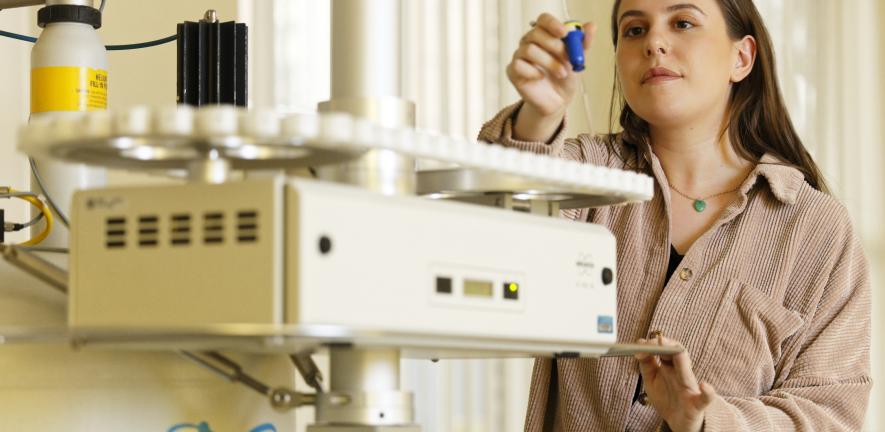
Hannah Lockett
Energy transfer catalysis in the Scherman group.
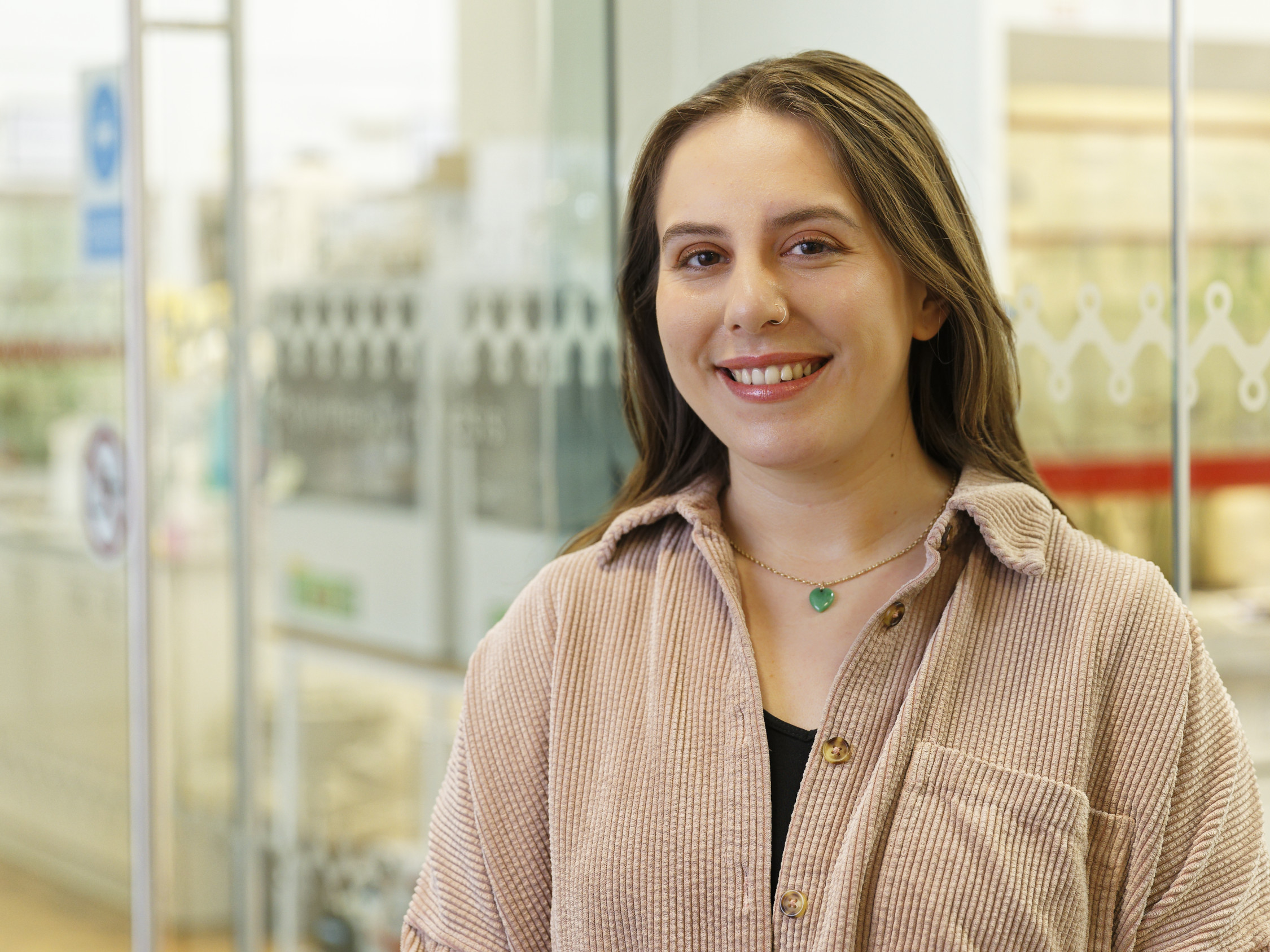
Hannah Lockett by Nathan Pitt, ©University of Cambridge
Hannah is in the second year of her PhD in the Scherman lab. She is interested in finding a more sustainable framework for catalysts.
Energy transfer catalysis stabilises energetic electrons which, in this context, is important to make their lifetimes longer. Easy access to high-energy electrons is desirable in the laboratory, but a lot of energy transfer catalysis is currently performed using unsustainable solvents and catalysts.
Hannah is investigating water-soluble hybrid catalysts spanning both the nano and molecular scale, which she achieves through initiating the self-assembly nanoparticles.
This technology has potential use in energy storage, photovoltaics and drug synthesis.
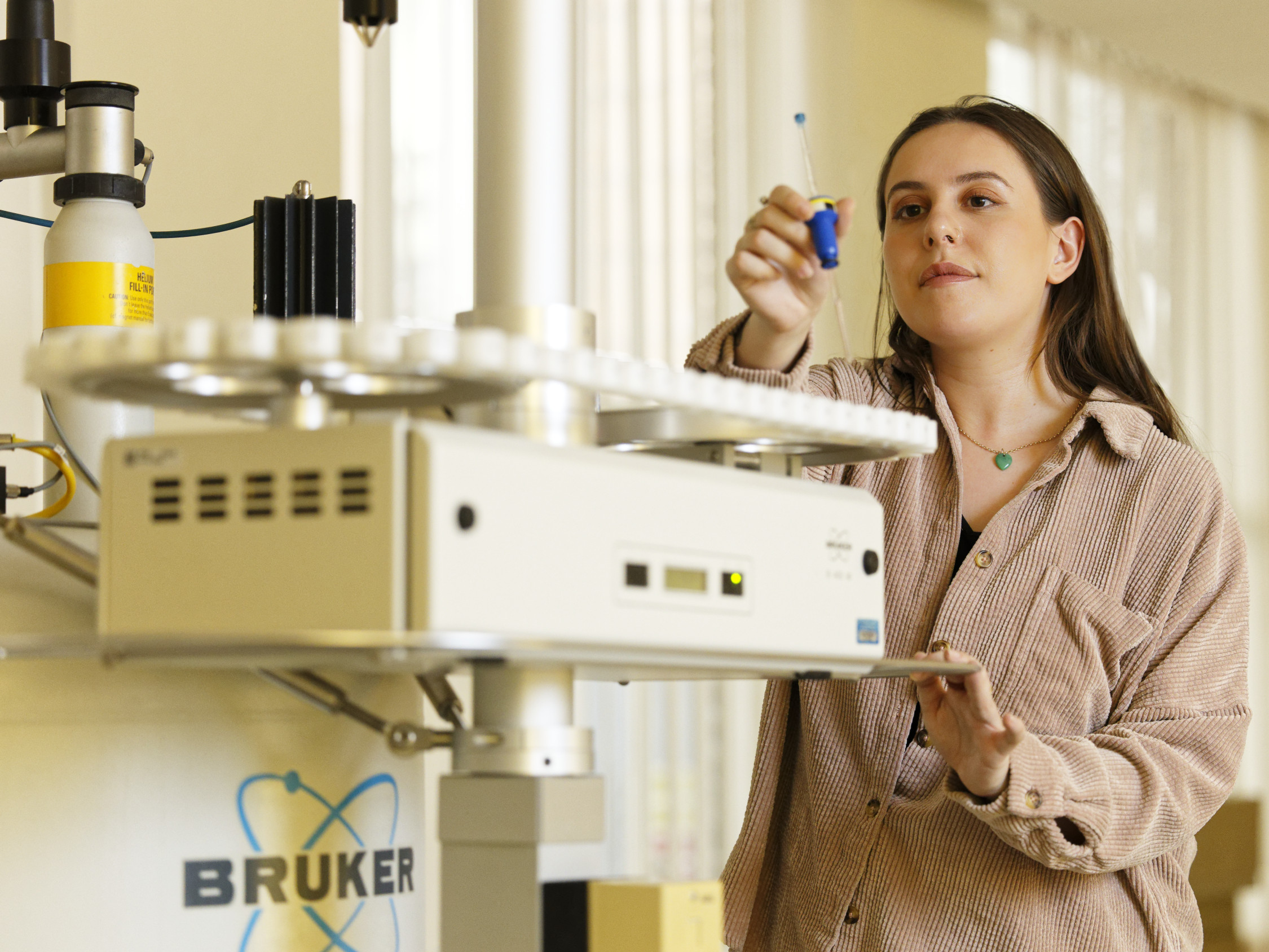
Hannah Lockett by Nathan Pitt, ©University of Cambridge
“My goal,” says Hannah, “is to take chemistry that is already understood to some extent, then reimagine the unsustainable parts to enable more sustainable processes in the long term.”
After her undergraduate degree at the University of Liverpool, Hannah took a break from science before applying to do an MPhil in Cambridge in April 2020. This was a nerve-wracking decision since it also coincided with the first big COVID-19 lockdown, but this pause turned out to be serendipitous since the Scherman group were searching for a suitable candidate for a multi-disciplinary project with a focus on catalysis.
Hannah is delighted with her project and says that it feels tailor-made for her, since she previously explored catalysis for her Bachelor’s degree. Hannah also wants to participate in outreach to bring the experiences of university to people who don’t come from academic families.
Hannah is funded alongside Chloe Balhatchet through the Walters-Kundert studentship programme, which supports up to two PhD students at Selwyn College to undertake doctoral work in this department. We are grateful to the Walters-Kundert Charitable Trust, which has long supported this department, and has endowed a Next Generation Fellowship and funds for the Chemistry Open Day in perpetuity.
Choonzo Chiyumba
Designing enzymes in the Barker/Boss group.
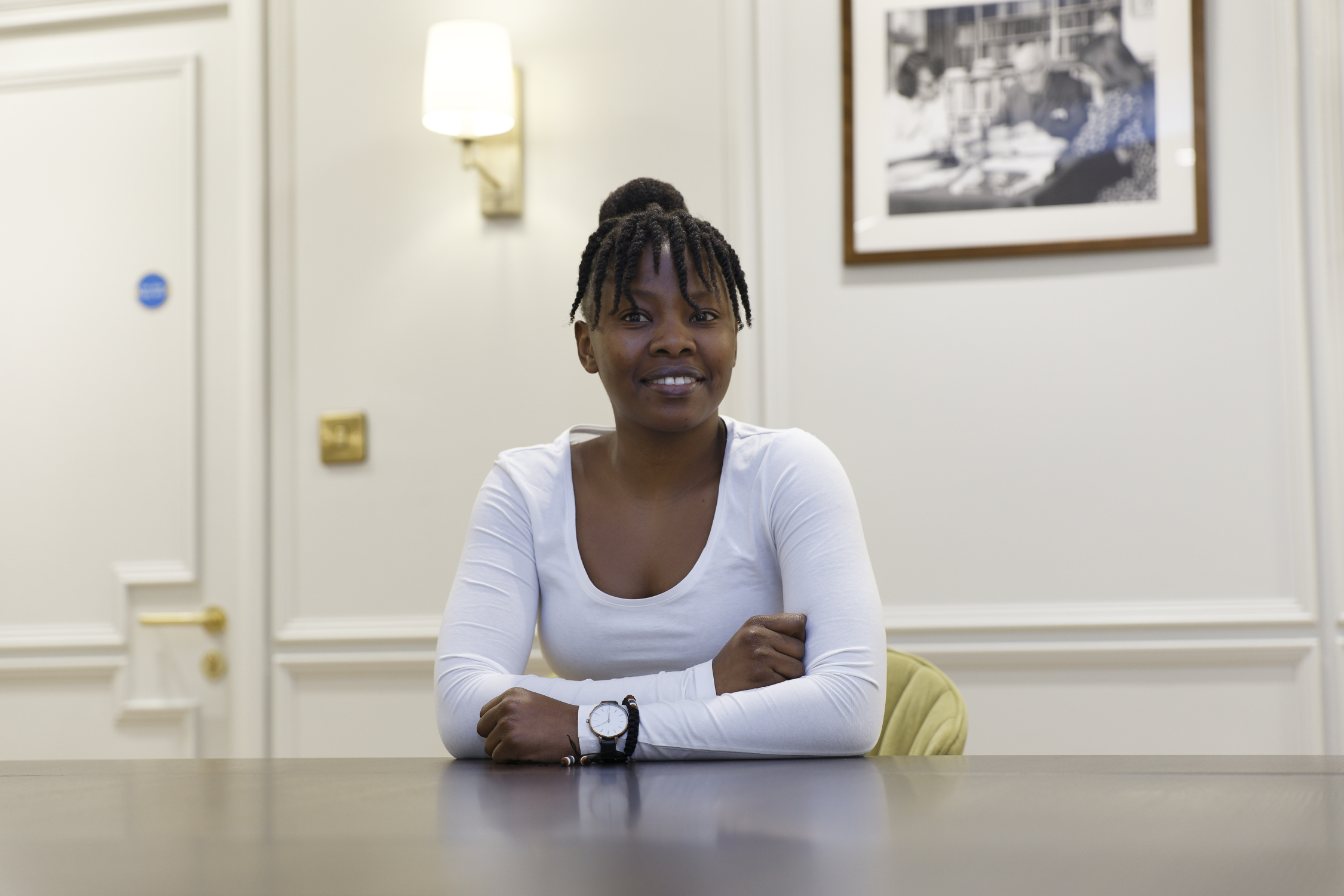
Choonzo Chiyumba by Michael Webb, ©University of Cambridge
Choonzo is in the first year of her PhD and is supervised jointly by Dr Paul Barker and Dr Sally Boss. She is designing artificial metalloenzymes that can act as catalysts.
Proteins naturally have a section called a cofactor that acts as a catalyst to help kickstart reactions. Choonzo encourages proteins to catalyse new reactions that are currently unknown to nature by removing this natural cofactor and replacing it with one that she has designed.
“Think of it like this: we are helping nature pick up new skills,” explains Choonzo, “I aim to speed up reactions, like the production of medicines or breaking down plastic waste.”
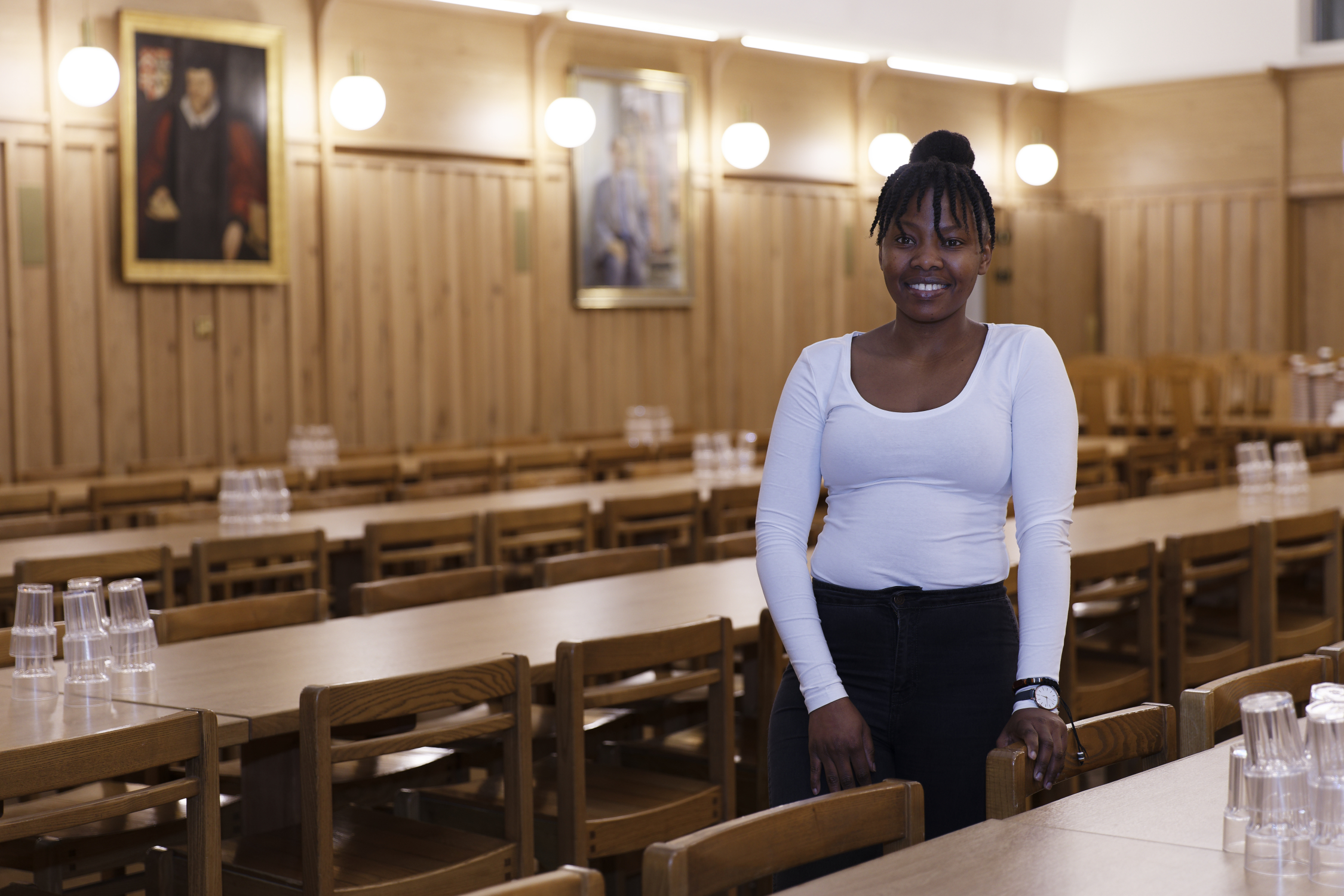
Choonzo Chiyumba by Michael Webb, ©University of Cambridge
Choonzo is combining these new catalysts with biosynthesis to use nature to synthesise products that would normally be unnatural. She is now gathering data about what sorts of reactions her new cofactor can catalyse by studying its interactions with different proteins and comparing the results to natural cofactors.
Choonzo had always aspired to study at Cambridge, and as a student in Africa labelled this as her unspoken dream because she felt this vision was so farfetched. As an undergraduate, Choonzo was inspired by Kelly Chibale, who was a PhD student in Stuart Warren’s group in the 80s and is now Professor of Organic Chemistry at the University of Cape Town. Like Kelly, Choonzo studied at the University of Zambia, and later Rhodes University, before starting her research here.
Choonzo is the first student to be funded by the Stuart Warren PhD Studentship held jointly with Churchill College, which was founded in memory of Stuart’s inspirational teaching, and supports students from the Southern African Development Community.
Elijah Suh
Investigating Parkinson’s disease in the Vendruscolo group.
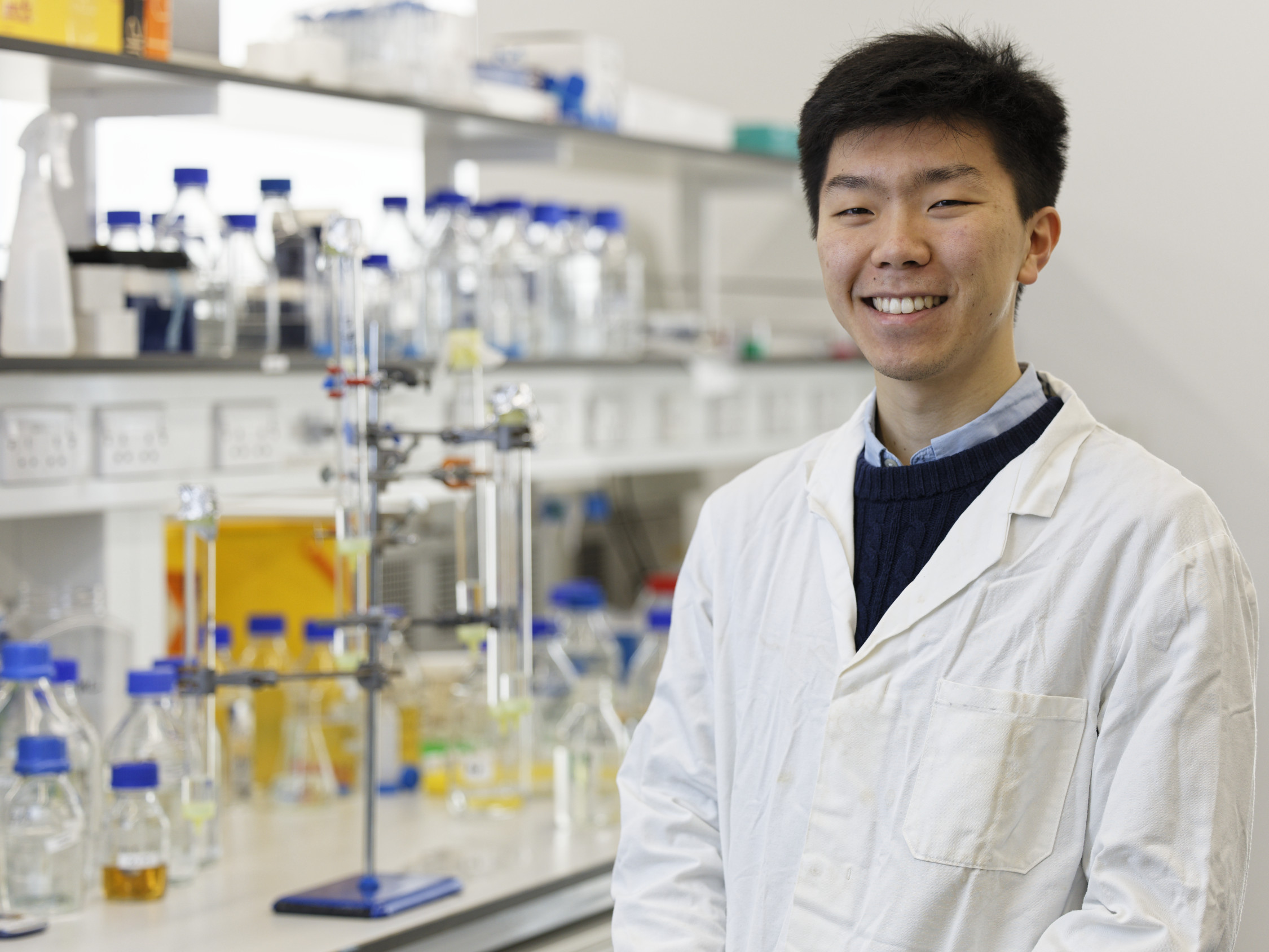
Elijah Suh by Nathan Pitt, ©University of Cambridge
Elijah is an MPhil in the Centre for Misfolding Diseases focusing on the development of diagnostic methods for Alzheimer’s and Parkinson’s diseases. As the first drugs for these conditions are becoming available in the clinic, there is still a major unmet need to correctly diagnose patients using quantitative methods based on biomarkers. Elijah is developing a new type of antibody to recognise misfolded protein oligomers, which are characteristic of these diseases.
Elijah was an undergraduate at Harvard University and was intrigued by the collaborative research conditions fostered at the Centre for Misfolding Diseases (CMD).
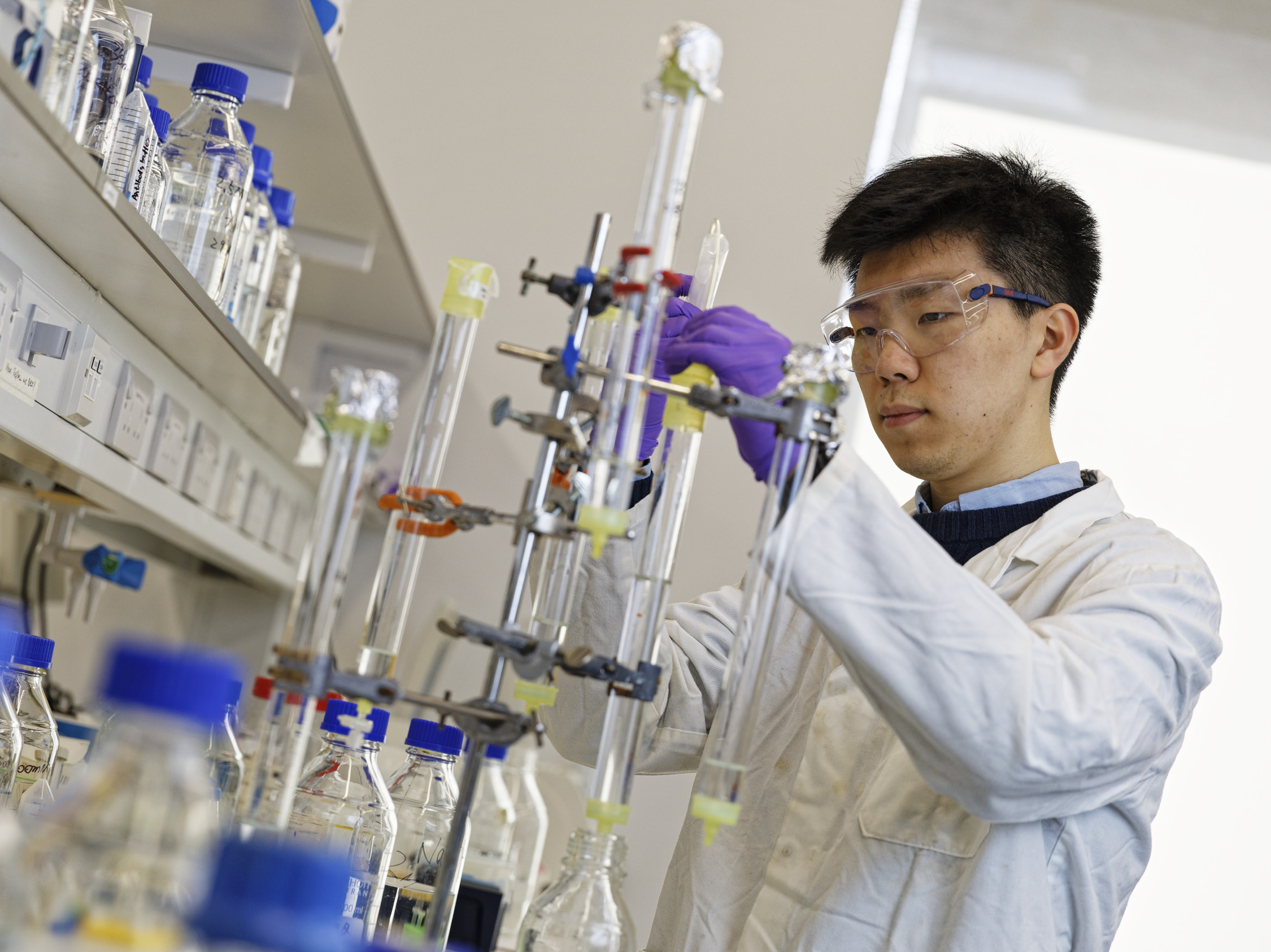
Elijah Suh by Nathan Pitt, ©University of Cambridge
“The centre is unique,” says Elijah, “it’s not just chemists and biologists, it’s also physicists and computer scientists, engineers and everyone is working at the same time in the same building. It is really distinctive and is part of what drew me to the research centre.”
He is the first Una Finlay Scholar supported by the Finlay Scholars programme set up by Derek Finlay and hosted by Emmanuel and St John’s Colleges. Derek’s association with the CMD began in 2015, with a major donation which led to the foundation of the Una Finlay laboratory in memory of his wife, who died of Alzheimer’s disease in 2016. His most recent gift, in 2022, was for bringing to the centre and the College a cohort of researchers like Elijah to develop new treatments for misfolding diseases.
This article first appeared in Chem@Cam Issue 66. You can find the magazine online here.

